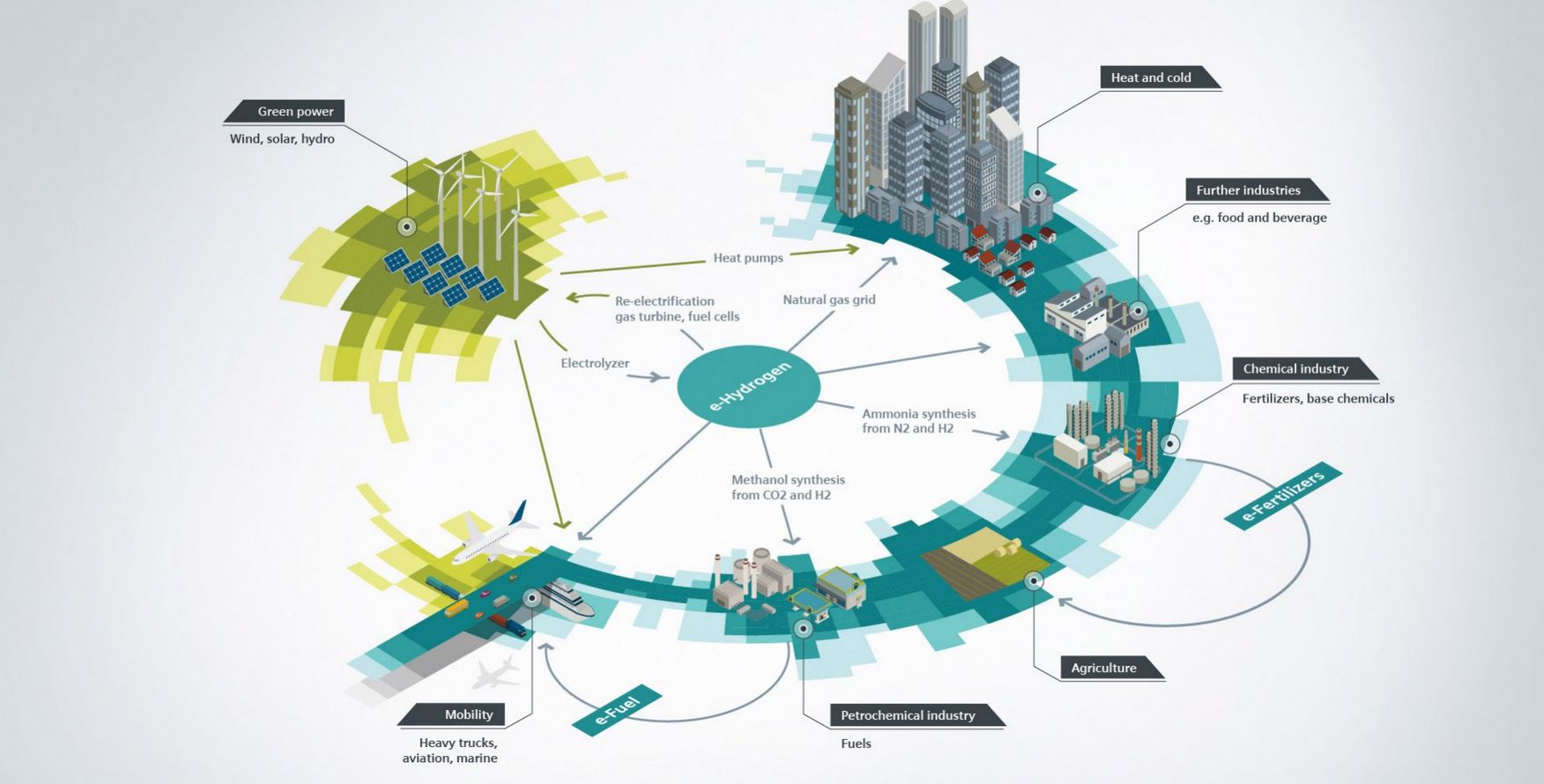Convenient green hydrogen economy and the emergence of the new hydrogen trade

The world is growing in economy at a very fast pace, with all the countries trying to become the best. To develop the countries, infrastructure development and industrial development is growing at a very fast pace. But we have become so selfish in this process that we do not consider the harm we are doing to the environment in this race of development. The environment has been constantly degrading. One such example of the degrading environment is the rising climate change.

Countries that are now considering monumental efforts to reduce the problem. The actions to mitigate climate change is a major global theme today across the countries for the upcoming years. These actions are not only necessary for the environment, but are much needed for trial and environmental sustainability. Every country comprises various strengths and therefore various strategies are made to control climate change and protect the environment. This would benefit the more resource-affluent countries which have modern technology to enable this change at a fast pace. This would provide them with a better edge against other countries.
Hydrogen is the current saviour of the environment. It is a critical energy vector on the path to decarbonisation and to reduce the dependency of energy on fossil fuels, therefore reducing the current levels of usage of fossil fuels, preventing their exhaustion. Hydrogen is known as the fuel of the future, as it is contributing majorly to the development of a sustainable environment.
The use of green hydrogen was started in the 1970s, but its usage now is enjoying major political and business momentum, as people are starting to get concerned for the environment. Rising net-zero targets, advancing technology, a significant reduction in the cost of producing renewable energy, with many countries hydrogen national strategies are all contributing to the growth of the use of hydrogen.

There are a large number of uses of hydrogen which have been recently discovered and therefore has led to unprecedented growth of hydrogen. Some of the recently discovered uses of hydrogen are transportation, power generation, industrial usage, energy storage, buildings and energy export. The rising levels of usage of hydrogen are very beneficial for the environment as well as for the economy.
It is expected that the total usage of hydrogen will dominate the energy supply systems. Hydrogen has the potential to unlock 15% of global energy demand if it is valued at the US $1.80 per kilogram. Another report claimed that hydrogen could capture 24 per cent of global energy demand if it is followed by appropriate policies and thus will highly influence the geological landscape.
How the hydrogen economy is contributing to the growth of the world?
The hydrogen economy has the potential to improve the security of energy, diversify the economy leading to reduction of the current pressure on fossil fuels and will impact the geological landscape. Cross border trade of hydrogen can also contribute to redrawing the landscape of global energy traders, can also lead to developing a new class of energy exporters and importers and therefore will redefine the global ties and alliances between the countries.
Future of trade of hydrogen
The global trade of hydrogen economy is most expected to be the trade of green hydrogen. The countries will aim to involve them in international trade, even if they can manufacture in their countries to the international trade. The future hydrogen economy provides scope for the creation of a brand new class of importer and exporter countries. Countries are most likely expected to assume their own rules according to the availability of resources, technological development and infrastructure potential.
The global hydrogen economy will also contribute to the development of new international agreements regarding the trade of hydrogen. Other benefits like the development of new alliances, development of partnership between countries and building up of regional networks are also followed up with the growth of the hydrogen economy.
The growth of this economy has already started. Many countries are taking an active part in open diplomacy to explore the prospect of large scale hydrogen trade. A hydrogen task force has already been established by Indi and the US under their Strategic Clean Energy Partnership (SCEP).
How the hydrogen economy helps to reduce the use of fossil fuel
Hydrogen provides the scope of equalising energy levels between countries by establishing a more dispersed and democratic global system. This leads to reducing the current high-level pressure on fossil fuels. Moreover, the dependence on fossil fuel-rich countries will also be reduced and will lead to altering the existing agreements. The future hydrogen economy will lead to the formation of new alliances and trade patterns.
One question which may arise is how much hydrogen will be required in the upcoming years? How much of it will be traded among countries?
The answer to this is still unknown to the world. There is no fixed size and scope of that market but one sure thing is the global race of hydrogen economy. The investment in green hydrogen technology has increased a lot in the last decade, but still, the cost challenge prevails. Fossil fuels are very less costly as compared to the cost of hydrogen developed energy. This has been a major issue that is acting as an obstruction in the growth of the hydrogen economy. To compete with fossil fuels, there is a need for further reduction in the price of hydrogen. Currently, the price of hydrogen varies between US $3/Kg and the US $6.5/Kg
Therefore, the competitiveness of cost of production and infrastructure deployment are the major determinants deciding the fate of a much beneficial hydrogen economy. Technology, availability of infrastructure and the upcoming market structure will determine whether the hydrogen economy will grow worldwide like and fossil fuels or not. All the factors together will decide if the hydrogen economy will prevail. The future is here, and if we still do not take action for the sustainable growth of the environment, the result will not be very good. The hydrogen-based economy will surely provide for a better future of the world, with more healthy development.
Edited by Tanish Sachdev





